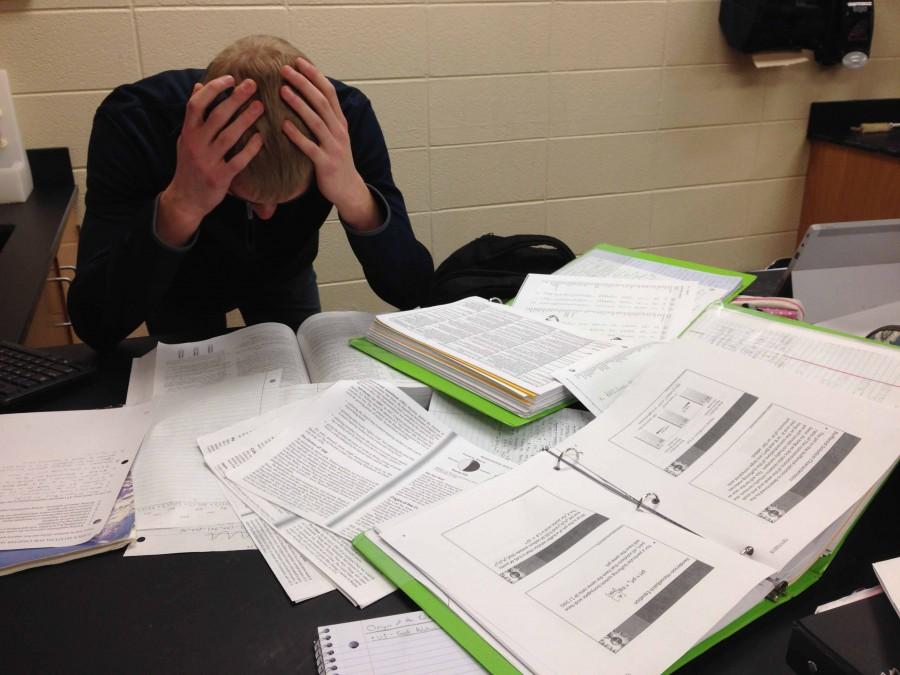How to effectively de-stress
Michael Elwing (’17) hunches over his AP Chemistry notes, problem sets, POGILS, and textbook as he tries to cram every ounce of knowledge about atoms, acid-base titrations, and the gas laws for the exam.
It seems a lot of students these days are living under constant stress – sometimes to the point where they accept stress as a part of their lives. But it’s important to remember that excessive stress has a myriad of health downsides, with increased risk of cardiovascular disease and diabetes among them. Therefore, it is very important that we know what to do – and what not to do – in order to effectively de-stress.
- Focus on one thing at a time. When dealing with a flurry of tests and deadlines whirling about, the best thing to do is to prioritize. Take it step-by-step, block out distractions, and settle yourself down into a workaholic attitude for a few minutes at a time. Each time you complete a step or task, congratulate yourself – that’s one less thing on the to-do list.
- Take a break. If you can afford to, of course – if that essay is due in an hour, don’t bother with this one; stick with tip number one above. But sometimes what you need is distance and perspective; constantly dwelling on an issue doesn’t help much. Pick up a book. Work out. Watch a movie. Take a nap. Come back in 20 minutes, in an hour, a day, four days – whatever you need to adjust your focus.
- Keep it in. Some people are under the impression that purging their emotions by yelling, ranting, swearing, etc. is an effective de-stressor. It really isn’t. Countless studies have shown that cathartic stress treatment does nothing to relieve stress and actually makes things worse. Instead, channel that stress into focused productivity.
- Discuss with others (but not too much!). Talking out your concerns can often be beneficial, giving you that new sense of perspective that you might not have had before. But it’s important to note that talk can only do so much; too much talk can induce even more stress, mainly because it interferes with tip number two. Psychologists call this effect “co-rumination”; you might just call it “overthinking”.
- Get some fresh air. This one might seem trite, but you’d be surprised at how much of a difference it makes. Your place of work might be very cramped or have stagnant air, which can worsen your psychological health. Open a window. Better yet, go outside and take a walk to stretch your legs for a bit!
- Once it’s done, it’s done. You’ve stressed during the week leading up to the test, and you’re expecting to stress once you get your results back (or not – look on the bright side, too!). There’s that sweet interim period in between those times where you can officially be stress-free. Don’t waste it – don’t bother panicking over that last FRQ because there’s really not much you can do about it now. And honestly, it probably went better than you think; you just need to step back for a bit to realize it.




